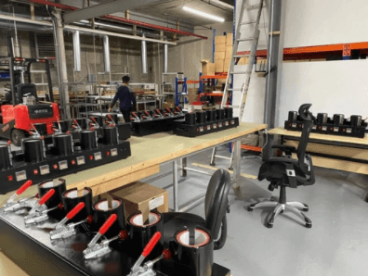US automobile giant Ford Motor is sacking as many as 3,000 employees and contract workers as economic headwinds deepen. The job cuts will mainly affect employees in the US, Canada and India.
Ford has sent an internal email to the staff intimating them about the layoffs, according to the Wall Street Journal.

A whopping 2,000 workers will be laid off at Dearborn, the report said. Some 1,000 employees to be fired are contract workers. The job cuts will be effective from September 1. The company will start informing the details of the process shortly.
Reshaping Business
Ford's Executive Chairman Bill Ford and Chief Executive Jim Farley explained that the job cuts are necessitated by a radical shift in strategy at the company. The legendary automaker is changing the way it operates and a redeployment of resources towards this goal necessitates reorganizing the staffing.
According to Farley, there are too many employees at Ford who don't have the expertise needed to transition to a portfolio of electric, software-laden vehicles, IANS reported.
Ford is aiming to cut $3 billion in annual costs by 2026. This will help the company reach the target of 10 percent pretax profit margin from 7.3 percent currently.
Amid global economy's struggle to shake off the impact of the pandemic, several huge corporations have either fired staff or warned that layoffs would be necessary.
'Blood on Streets'
Close on the heels of several technology giants laying off staff or freezing hiring, search giant Google issued a stark warning to the staff earlier this month in view of the dim outlook for the business climate.

Google executives have reportedly warned workers to either boost performance or prepare to leave. An internal message circulated among the employees warned that "there will be blood on the streets" if the next quarterly earnings are not good.
Many Big Tech companies like LinkedIn, Meta, Oracle, Twitter, Nvidia, Snap, Uber, Spotify, Intel and Salesforce have either laid off employees or frozen hiring amid the global economic downturn.
Shockingly, tech giant Apple laid off recruiters after warning earlier that an economic downturn was forcing a hiring freeze. Bloomberg News reported that as many as 100 contract workers have been fired, indicating the spending squeeze at the iPhone maker.
The development came two weeks after Apple reported record revenues in the quarter ended June 30.
In July, Microsoft laid off hundreds of employees ahead of its quarterly earnings and amid growing economic uncertainty. The move, the company said, was in a bid to "realign" groups and roles after the close of its fiscal year on June 30, even as the company intends to grow its headcount in the coming months.
Tesla said in June it was planning to axe 10 percent of staff, along with freezing hiring amid stalled Twitter deal, global macroeconomic conditions like chip shortage, rising inflation and high interest rates. Elon Musk had emailed Tesla executives, telling them the electric car-maker needs to pause hiring worldwide and cut its workforce by about 10 percent.

In early July, Meta boss Mark Zuckerberg warned employees that the company was facing one of the worst downturns in its history and that job losses are certain in the near future. The CEO of the tech giant that owns social media companies Facebook and Instagram said in uncertain terms there will be a scaling back of operations and employee departures owing to the tight financial squeeze the behemoth is facing.
Chinese tech giant Tencent said last week it sacked a whopping 5,500 employees after the June quarter revenue dipped 3 percent, which was the company's first quarterly revenue slip after listing.
Earlier in March, Reuters had reported that Alibaba Group and Tencent Holdings were preparing to cut tens of thousands of jobs combined this year.
Smartphone giant Xiaomi said last week it has cut more than 900 jobs as the Chinese economy is witnessing a slowdown. The smartphone giant had revealed that its revenues fell 20 percent in the June quarter. The layoffs affected nearly 3 per cent of Xiaomi's workforce, according to the South China Morning Post.








